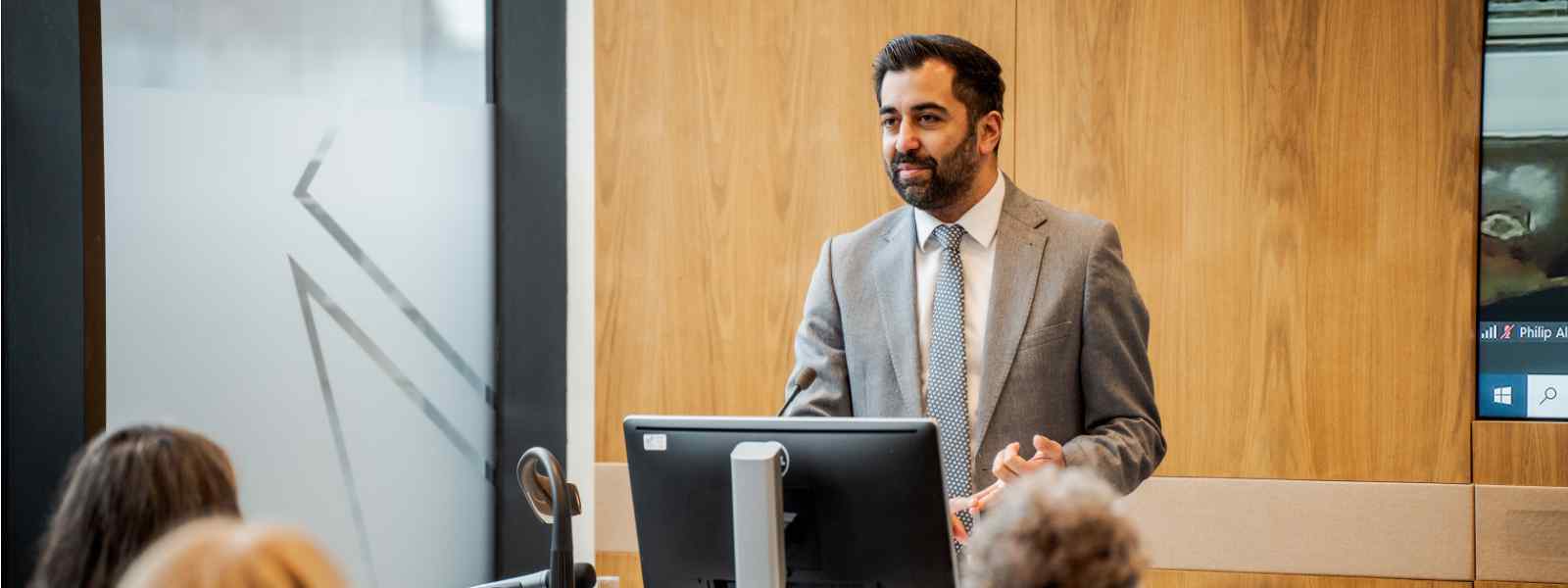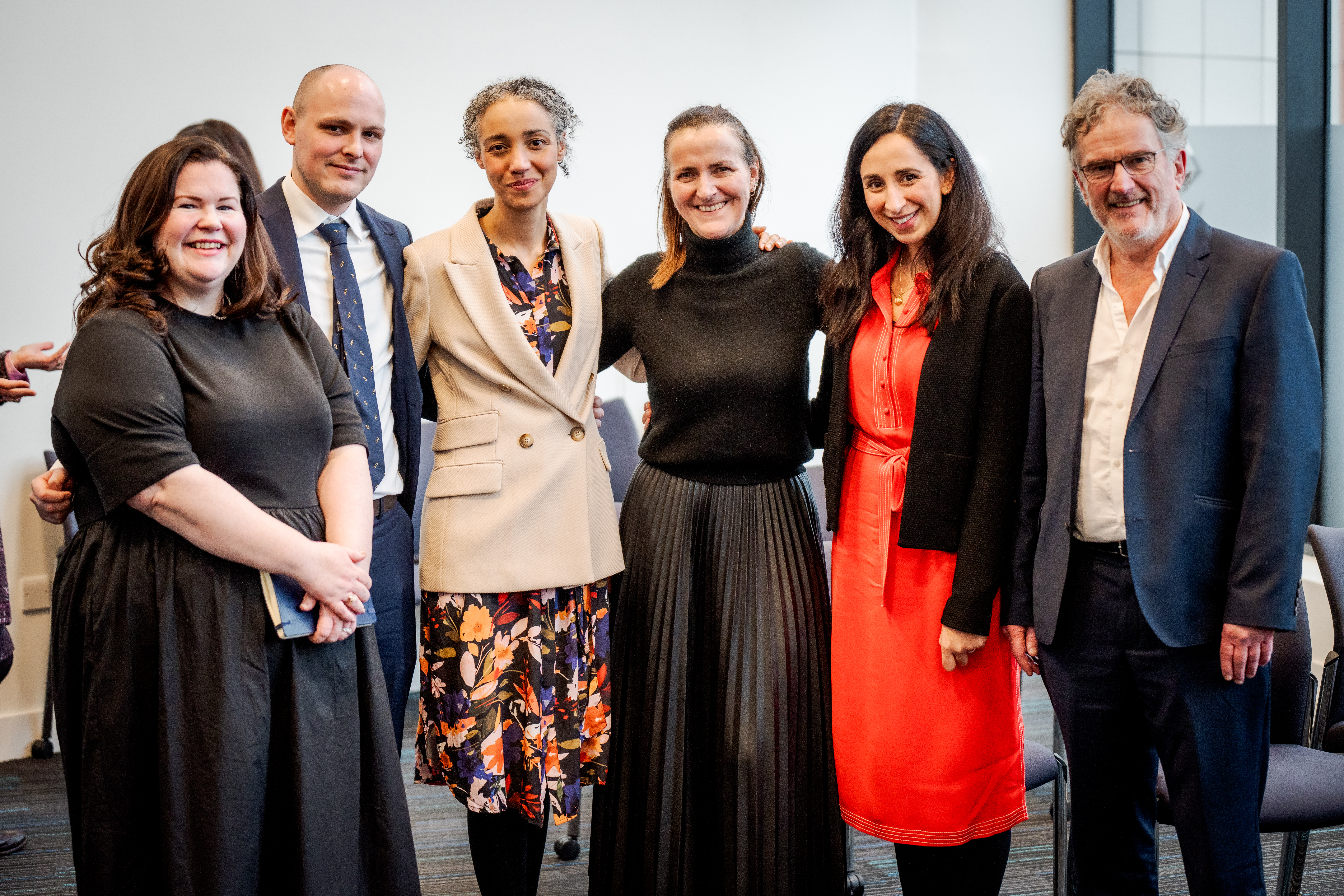
Progress towards a new human rights framework for Scotland has been highlighted in an event at the University of Strathclyde.
Strathclyde Law School has made a significant contribution to the development of the framework, set out in the Scottish Government’s recent consultation paper on a Scottish Human Rights Bill. The Bill is to be introduced to the Scottish Parliament next year.
The Bill is expected to propose the incorporation into Scots law of a wide range of UN human rights treaties, and to include rights to an adequate standard of living, including food and housing, a healthy environment, the highest attainable standard of physical and mental health, social security and the right to take part in cultural life.
First Minister Humza Yousaf MSP, former First Minister Nicola Sturgeon MSP and Professor Philip Alston, former UN Special Rapporteur on Extreme Poverty and Human Rights, were among the speakers at the event, which included the inaugural lecture of Strathclyde’s Professor Katie Boyle, who is acting as Independent Expert to the Scottish Government in the Bill's preparation.
The Bill is being prepared after a National Taskforce for Human Rights Leadership made 30 recommendations, which were accepted in full by the Scottish Government. The Taskforce was chaired by Professor Alan Miller, Professor of Practice in Human Rights at Strathclyde Law School, while Law School colleagues Professor Elisa Morgera and Dr Elaine Webster were members of, respectively, the Taskforce and its academic Advisory Panel. Professor Boyle was also with the Academic Advisory Panel and, previously, the First Minister's Advisory Group for Human Rights Leadership which was chaired by Professor Miller. Strathclyde Visiting Professor Kavita Chetty is Deputy Director for Human Rights at the Scottish Government, with responsibility for overseeing the policy preparation for the new Human Rights Bill.
Professor Alston said: “Human rights treaties are no panacea, but the commitments they reflect are an indispensable starting point for a society that seeks to take social justice seriously.”
Professor Miller said: “In the challenging times we are living through, this landmark Human Rights Bill will improve people’s lives and is a fitting way for Scotland to step up and mark the 75th anniversary of the Universal Declaration of Human Rights and the mid-point of the 2030 Agenda of Sustainable Development Goals.”
Constitutional change
Professor Boyle said: "Scotland is on the verge of significant constitutional change to embed everyday rights into law. We should celebrate this step on the journey, whilst also recognising there are challenges ahead in the pursuit of social justice accountability as an everyday exercise."
First Minister Humza Yousaf said: “The Scottish Government I lead will remain committed to enhancing the rights of the people of Scotland. That’s why we are committed to a new Human Rights Bill for Scotland to place more of our rights at the heart of decision making and the delivery of services.
“Our ambitions are very different to the UK Government’s and I believe our progressive trajectory will remind people why human rights remain essential to our everyday lives.
“I’m well aware governments do not arrive at progressive policies alone. Scotland’s diverse civil society groups, academia, and the Scottish Human Rights Commission have worked closely with the Scottish Government at every step on our human rights journey, challenging us to do more – a challenge I welcome. I know that Strathclyde University’s Centre for the Study of Human Rights Law will continue to offer their leading expertise as we progress on Scotland’s journey towards becoming a global human rights leader."

Dr Webster, who is Director of Strathclyde’s Centre for the Study of Human Rights Law, said: “We have had great pleasure in welcoming the First Minister, the former First Minister and Professor Alston to this event. Their presence and participation have been a testament to the importance of the human rights framework and to Strathclyde Law School’s role in informing it.”
The event was hosted by the Centre for the Study of Human Rights Law. It marked the 75th anniversary of the Universal Declaration of Human Rights. The theme of Professor Boyle’s lecture on enabling effective access to social justice also coincided with the 20th anniversary of Strathclyde Law Clinic. The Clinic offers free representation and advice to people who are unable to obtain legal help by other means.